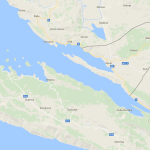Despite latest protests from some government officials from Bosnia and Herzegovina, Croatia is determined to construct the Pelješac Bridge.
“I want to once again say to our friends in Bosnia and Herzegovina, but also to the Croatian citizens, that the project of connecting southern Croatia with the rest of the country, and linking of the European territory, by the construction of the Pelješac Bridge will continue. The bridge will be built, and the dialogue with Bosnia and Herzegovina will continue. We have discussed this issue during the joint session of the Bosnian Council of Ministers and the Government of Croatia at the beginning of July in Sarajevo,” said Plenković during today’s session of the government in Zagreb, reports N1 on August 31, 2017.
Plenković’s reaction followed yesterday’s action by Minister of Civil Affairs of Bosnia and Herzegovina Adil Osmanović. He sent a letter to Croatia’s Minister of the Sea, Transport and Infrastructure Oleg Butković on the occasion of the expected start of the construction works on the Pelješac Bridge. Osmanović informed Butković about the existence of alleged legal obstacles for the building.
The letter was also addressed to President of the European Commission Jean-Claude Juncker, EU High Representative for Foreign Policy and Security Federica Mogherini, European Commissionaire for Enlargement Johannes Hahn, as well as EU’s High Representative in Bosnia and Herzegovina Valentin Inzko and Head of the European Union delegation to Bosnia and Herzegovina Lars-Gunnar Wigemark.
Osmanović urged Butković and the government of Croatia to urgently suspend all activities related to the construction of the Pelješac Bridge. His letter was just part of the latest wave of efforts by mostly Bosniak members of the country’s political leadership to delay or prevent the construction of the bridge.
The Pelješac Bridge should connect the southernmost part of Croatia around Dubrovnik and the Pelješac peninsula with the rest of Croatia, which is divided near the peninsula by a short stretch of coastal territory belonging to Bosnia and Herzegovina. Bosnian officials claim that the bridge cannot be constructed before the maritime border between Croatia and Bosnia and Herzegovina is determined. They also say that the bridge might prevent larger ships from sailing to Neum, which is the only Bosnian town located on the Adriatic coast.
Croatia claims that the bridge would be constructed on what is without a doubt part of Croatia’s territory and that the dimensions of the bridge would allow even the largest ships to pass below it and reach Neum. The European Union has approved a substantial grant from its structural funds for the construction of the bridge, which is another argument in favour of Croatia’s position.
While Bosniak politicians are against the construction of the bridge, Serb and especially Croat representatives in Bosnia and Herzegovina are supportive.








